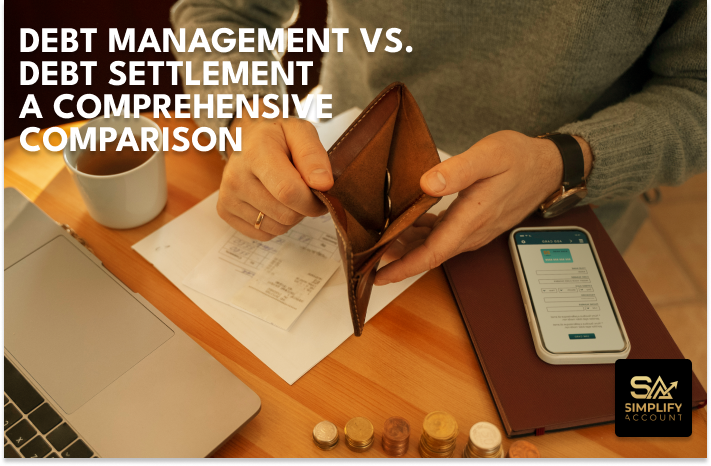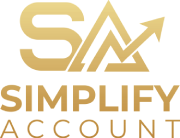Debt management vs. Debt Settlement are two common strategies for managing debt, but they differ significantly in their approach and impact on your financial health. Understanding the differences between these two options can help you make an informed decision about which one is right for you.

Debt Management Programs: A Path to Financial Stability
Debt management programs (DMPs), provided by nonprofit credit counseling agencies, offer a structured approach to tackling debt. These programs aim to help individuals avoid bankruptcy by negotiating with creditors to reduce interest rates and waive fees. Here’s what you need to know about DMPs:
How Debt Management Works
- One Monthly Payment: DMPs consolidate all debts into a single monthly payment to the credit counseling agency, which then disburses payments to creditors.
- Financial Counseling: DMPs include financial coaching to help clients create budgets and manage money effectively.
- Full Repayment: Participants agree to repay the full amount of their debt over a period, typically three to five years.
Advantages
- Simplified Finances: With a single monthly payment, managing finances becomes more straightforward.
- Cost Savings: Negotiated lower interest rates and waived fees can lead to reduced overall payments.
- Credit Impact: DMPs can help rebuild credit by ensuring on-time payments and reducing credit utilization.
Alternatives to Debt Management
- Debt Consolidation: Combining debts into a single, lower-interest loan.
- Credit Counseling: Seeking advice on managing debt without enrolling in a formal DMP.
- Debt Settlement: Negotiating with creditors to accept a lower repayment amount than what is owed.
Debt Settlement: A Last Resort for Debt Relief
Debt settlement involves negotiating with creditors to accept a lower repayment amount than what is owed. While it can reduce debt, it comes with significant risks and should be considered carefully:
How Debt Settlement Works
- Negotiation Process: Individuals or debt settlement companies negotiate with creditors for a reduced payoff amount.
- Credit Impact: Debt settlement can severely damage credit, as it involves delinquency and non-payment of debts.
- Last Resort: Debt settlement is typically recommended for those in severe financial distress who cannot afford bankruptcy.
Advantages
- Reduced Debt: Settlements often result in paying less than the full amount owed.
- Avoiding Bankruptcy: For those who cannot or do not want to declare bankruptcy, debt settlement offers an alternative.
Alternatives to Debt Settlement
- Credit Counseling: Exploring options with a credit counseling agency.
- Debt Consolidation: Consolidating debts with a lower-interest loan or balance transfer.
Debt Management vs. Debt Settlement: Which Is Better?
- How It Works: Debt Management offers a structured program with reduced interest rates and one monthly payment, while Debt Settlement involves negotiation for a lower payoff amount, often involving delinquency and credit damage.
- Credit Impact: Debt Management typically does not negatively impact credit when successfully completed, while Debt Settlement results in credit damage, with delinquencies remaining on credit reports for up to seven years.
- Cost: Debt Management offers low-cost or no-cost services, with negotiated reductions in interest and fees, while Debt Settlement companies may charge fees of 15 to 25% of the total enrolled debt.
Advantages and Risks
- Debt Management: Offers support and counseling, helping clients get out of debt while paying creditors in full.
- Debt Settlement: Can reduce total debt but comes with risks, including credit damage and potential tax implications.
Frequently Asked Questions
- Can I negotiate a credit card debt settlement myself?
Yes, you can negotiate a credit card debt settlement yourself. Start by contacting your creditors directly to discuss your situation and negotiate a lower payoff amount. Be prepared to explain your financial hardship and make a reasonable settlement offer. - What percentage of a debt is typically accepted in a settlement?
The percentage of a debt that is accepted in a settlement can vary depending on the creditor and your individual circumstances. However, creditors may accept anywhere from 25% to 70% of the total debt amount in a settlement. - How do I negotiate with debt collectors for a lower settlement?
When negotiating with debt collectors for a lower settlement, it’s important to be prepared and stay calm. Start by offering a percentage of the total debt that you can afford to pay. Be persistent but also flexible, and be sure to get any settlement agreement in writing before making any payments. - How can I find a credit counseling agency to get help and sign up for a debt management program?
To find a reputable credit counseling agency, start by checking with the National Foundation for Credit Counseling (NFCC) or the Financial Counseling Association of America (FCAA). These organizations accredit nonprofit credit counseling agencies that offer debt management programs. You can also ask for recommendations from friends, family, or financial advisors.
Conclusion
Individuals can choose between debt management and debt settlement to manage overwhelming debt. Debt management provides a structured approach with credit counseling and budgeting assistance, while debt settlement aims to reduce the total amount owed but involves significant credit risks. It is important for individuals to carefully consider their financial situation and consult with professionals before selecting a debt relief option.


